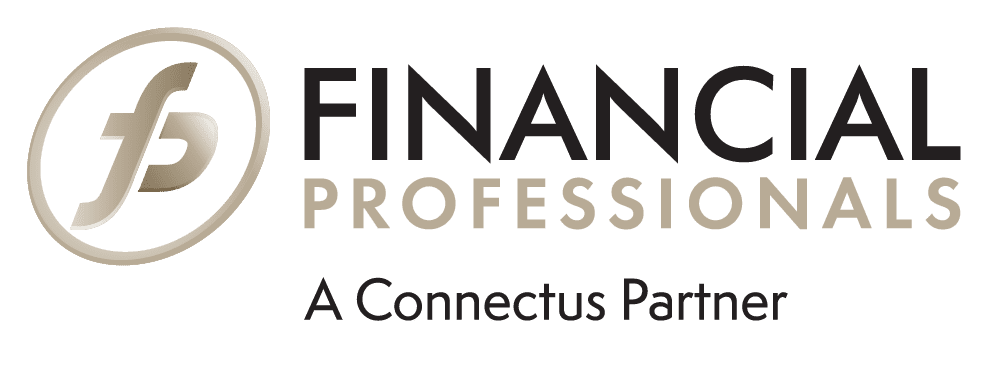Understanding your financial needs;
Finding the right financial advisor is more crucial than ever in the post Banking Royal Commission climate in Australia.
Trying to find the best financial advisor for your needs involves a combination of a bit of reflection and some research.
Take the time to evaluate your current financial situation and reflect on your financial goals. Once you have a better understanding of your circumstances you can then decide what sort of financial services you need.
To find the best financial advisor for your situation you need to know what type of financial advice you need, and what services a potential advisor provides.
How complicated are your personal financial circumstances?
An example of the simplest financial situation is; A young single working person who rents his or her home.
At the other end of the scale is someone like this: A successful entrepreneur who owns a company (or three) and is facing large capital gains reflecting the sale of a business. They have children and grandchildren to pass wealth to; have multiple sources of income, own multiple real estate properties and have involved tax matters to go with it. They work with countless professionals; lawyers, accountants, bankers, mentors, and other consultants. They have numerous investment portfolios over various structures; have a detailed will, insurance policies and are involved in major philanthropic endeavours.
Most people fall somewhere in between these two extremes. The more complex your circumstances, the more likely you would benefit from some professional help.
What are your long-term financial goals (five years or more)? Are you on track for making them?
To prompt more-thoughtful goal identification, these are the most common answers from investors:
- To pay for personal self-improvement (e.g., go back to school, learn a skill)
- To start a new business
- To buy a house
- To help pay for my kids’ college education
- To stop working and do something I love
- To go on a dream vacation
- To care for my aging parents
- To give to charity or other causes I care about
- To feel secure about my finances now
- To not be a financial burden to my family as I grow older
- To leave an inheritance to my loved ones
- To retire early
Understandably, your financial goals will change over your lifespan. Financial planners usually break down the financial life cycle into four key phases: accumulation, consolidation, pre-retirement, and retirement. You need a financial plan to suit the stage of life you are in.
ACCUMULATION: People in their 20s and 30s have a longer time horizon, not a lot of cash flow, and the ability to embrace more risk for potentially greater returns. You are establishing and building your career and perhaps starting a family. You may be looking at: buying your first home, traveling, paying off your HECS, getting married, having children, family healthcare, business planning.
CONSOLIDATION: People in their 30s to 45 are usually beginning to achieve a comfortable lifestyle and thinking about managing their long-term future. You’re likely to focus on: protecting your lifestyle, healthcare, investments, financing home renovations, tax management, debt management, inheritance, retirement planning, long-term care planning, income protection.
PRE-RETIREMENT: People aged 45 to 65 still have 20 or more years of retirement ahead of them, their priorities will depend on how well you’ve prepared. Your main concerns may be: protecting your assets, debt elimination, family healthcare, helping your children, retirement planning, wills, and trusts and business exit strategy.
RETIREMENT: For those aged 65+ it is the time to indulge in hobbies or travel, enjoy your family and prepare for transferring your wealth. You may be thinking of: protecting your assets, healthcare, aged care planning, traveling, buying a caravan, inheritance tax mitigation, gifting to family, preserving your capital, estate planning.
Assess where you are on these timelines and determine whether your goals align with the current phase of your financial life cycle.
Finding the right fit
Once you have clarity around your position and goals, the next step is to find the right advisor for you. Financial advisors are not one-size-fits-all.
Although most financial advisors offer advice on a wide range of topics, some specialize in areas such as;
- Risk and Protection
- Retirement Planning
- Investment Advisory
- Tax and Structuring
- Debt Consolidation
- SMSF’s
Let’s take a look at the three main types of financial advice that you might seek;
Comprehensive Financial Plan
Financial planning involves looking at your entire financial situation and laying out a plan to take you in the direction you want to go.
It involves looking at the type of mortgage you have (as well as all types of debt), your insurance needs and current coverage, family situation, career stability, spending habits, legal documents, and retirement plans. A good financial planner will look at everything having to do with your money and work with you to craft a strategic plan of attack to help you reach your goals.
Investment Advisory
Investment advice is just one small piece of financial planning. They work with your strategic financial plan, to evaluate the best options for your investment portfolio.
Investment advisors usually have a specialty such as managing bonds, stocks, creating and managing options strategies, or managing mutual funds using an asset allocation approach. Some investment advisors specialize in doing due diligence and screening other advisors to pick the right type of advisor for each category. A good investment advisor knows when to seek outside expertise for certain parts of your portfolio.
Retirement Planning
Retirement planning involves a skill set that goes beyond basic financial planning or providing investment advice.
A retirement planner’s job is to take all of your financial assets and create a plan that results in the delivery of reliable monthly income once you aren’t working. They consider all of your assets including superannuation, any income, and how your spouse’s income factors into the calculations.
A retirement planner will project out how much retirement income you may expect to have at what date, and which accounts to draw out of. They can show you how much you’ll expect to pay in taxes and for health care costs. They show you how inflation may affect your spending needs, and what decisions will help put the future 80-year-old you in a more secure position.
Although other financial advisers will help you think ahead and plan for retirement, the retirement planner will go much deeper in the calculations and forecasting.
Can I Have All Three?
Yes, some wholistic firms have expertise in all areas because they have a large enough staff, or resources with outside consultants, or expert advisors who have niche topic areas, which allow them to be competent across all areas. This type of firm can be a long-term home that will meet your financial planning, investment and retirement planning needs without you needing to make a change later in life.
As you now have a better understanding of your own needs and what advice services are likely applicable to you, it is now time to choose an adviser that is right for you.
Have a look online, talk to family and friends, in particular people who have a similar income and lifestyle to you, people who you consider to be financially savvy, ask them who they go to for advice.
Choosing the right financial advisor
Finding an Adviser
You could simply do a google search of financial advisers in your local area to get started, however, this may be overwhelming in most major cities.
Another option is to utilise a ‘find an adviser’ tool produced by an industry association. The benefit of searching through an association is that they require members to participate in ongoing training and follow a code of conduct.
The Financial Planning Association (FPA) is Australia’s leading professional association and represents the interests of the public and its 14,000 members.
Find a Planner: https://fpa.com.au/find-a-planner/
Is your adviser licensed?
Once you have a shortlist, the first thing you want to do is to verify that they are licensed to provide you with the services you are going to be paying them for.
Go on to the government’s website MoneySmart to check that they are licensed;
https://www.moneysmart.gov.au/investing/financial-advice/financial-advisers-register
The register contains other important information, including; their history, qualifications and current employment status.
Check them out online
Now is always good time to search your advisers’ firms website and see if they appear to specialise in the service you are after. While you are there, you can also read any reviews on your adviser or their company and see if they match your ideals, at face value.
You can also search your adviser on adviser ratings; https://www.adviserratings.com.au/
Interview them
When meeting with your shortlist of financial advisors consider your communication style, it’s important to find someone you feel comfortable with. The right questions can help you weed out financial advisors who you don’t communicate well with. The key is making sure you understand the answers, and if you don’t, feeling comfortable enough to ask follow-up questions.
At your first meeting (or in some cases, before) the adviser should give you and go through their Financial Services Guide. This documents will shed light on what services they offer, remuneration methods, ownership structure and any conflicts of interest they may have.
Ask How Long have they Been Practicing
Along with years of experience, you may wish to ask the advisor what subjects they are most interested in pursuing. Their answers should reflect subjects that are pertinent to their ideal client. If they say they work with retirees, but they are most interested in actively trading currencies, that should concern you. An advisor’s continuing education and professional interests should be aligned with the type of client they work with.
Ask How He or She Is Compensated
The key here is to listen for an honest answer. A financial advisor should be willing to explain all the fees you will pay to them, and all expenses you will pay associated with any investment they recommend. Are they licenced through a company that also sells a product? Make sure you understand if this affects their compensation and how they manage this conflict of interest.
Ask them to Explain a Financial Concept to You
The purpose of this is to find out if they can communicate with you in a way that you’ll understand. If they speak over your head, or their answer makes no sense, ask for clarification. If you still don’t understand the answer, consider whether you will feel confident and comfortable in dealing with them into the future. You want to work with someone who can explain financial concepts to you in a language you can understand.
Below are five concept-oriented questions to consider asking:
- What is the difference between a passive vs. active investment?
- What is financial independence?
- What are the benefits of Superannuation?
- How do you determine how much of my money should be in stocks vs. bonds?
- What is good and bad debt?
Ask Them to Describe Their Ideal Client
Any good financial advisor will have an area of expertise. You want someone who has expertise working with people like you. If you’re about to retire, and they tell you they work with young families, maybe this isn’t the person for you. Find a financial advisor whose ideal client sounds similar to your situation concerning age, stage of life, and asset level.
In case you hadn’t guessed it by now, our Gold Coast based financial advisors are all highly qualified, experienced and passionate about the success of our client’s financial goals. If you’d like to talk with them about your financial situation get in touch for a free consultation, or pop your details into the form below and we will be in touch.
[wpforms id=”4883″ title=”false” description=”false”]

